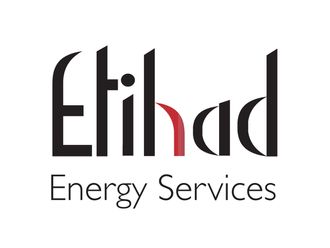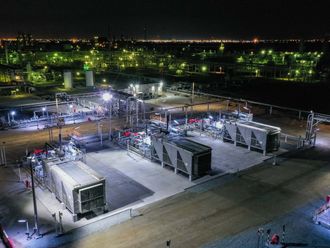London: Oil advanced after Turkey shot down a Russian warplane near the border with Syria, fanning concern that conflict in the region may intensify.
Futures rose as much as 1.8 per cent in New York. A Russian Su-24 jet was brought down after being warned it was violating the country’s airspace, Turkey’s state-run Anadolu Agency reported, citing people in the office of President Recep Tayyip Erdogan. Prices rose earlier after Saudi Arabia reiterated on Monday that it’s committed to working with Opec members and other producers to stabilise the crude market.
Oil is still trading about 44 per cent below its price a year ago amid signs a global glut will be prolonged as the Organisation of Petroleum Exporting Countries continues to pump above its collective quota. Iranian Oil Minister Bijan Namdar Zanganeh said there isn’t a strong intention from some parts of Opec to stabilise the market. The 12-member group meets Dec. 4 to discuss its production target.
“The latest escalation of the proxy war in Syria won’t have much meaningful impact on oil supply or demand,” Richard Mallinson, an analyst at consultants Energy Aspects Ltd., said by email. “But with trading volumes thin before Thanksgiving, we have the conditions for a knee-jerk reaction to headlines, all the more so as physical oil markets show positive signs.”
West Texas Intermediate for January delivery climbed as much as 77 cents to $42.52 a barrel on the New York Mercantile Exchange and was at $42.13 as of 11:27am. London time. The contract slid 15 cents to $41.75 on Monday. The volume of all futures traded was about 17 per cent above the 100-day average.
Opec Output
Brent for January settlement traded for $45.34 a barrel on the London-based ICE Futures Europe exchange after rising as much as 80 cents, or 1.8 per cent, to $45.63. The European benchmark crude traded at a premium of $3.22 to WTI.
Saudi Arabia strives to “cooperate with all oil producers and exporters, from inside and outside of Opec, to preserve the stability of the market and prices,” the nation’s cabinet said in a statement. Last week, Oil Minister Ali al-Naimi said the country is a reliable supplier and the nation cooperates with Opec and countries outside the group to stabilise the market. The kingdom is OPEC’s biggest producer.
“It looks as if we have hit a price level which is becoming increasingly difficult for Opec, including Saudi Arabia, to digest,” Ole Hansen, head of commodity strategy at Saxo Bank A/S in Copenhagen, said by email. “The statement made yesterday most certainly amounts to verbal intervention.”
Opec has pumped above its collective target of 30 million barrels a day for the past 17 months, according to data compiled by Bloomberg. The group, which supplies about 40 per cent of the world’s crude, will probably maintain its policy of defending market share at the meeting next week in Vienna, according to all 30 analysts surveyed by Bloomberg.
US crude stockpiles probably rose for a ninth week through Nov. 20, according to a Bloomberg survey before Energy Information Administration data Wednesday. Inventories probably expanded by 1 million barrels, the survey showed. That would be the longest run of gains since April and keep supplies more than 100 million barrels above the five-year seasonal average.












